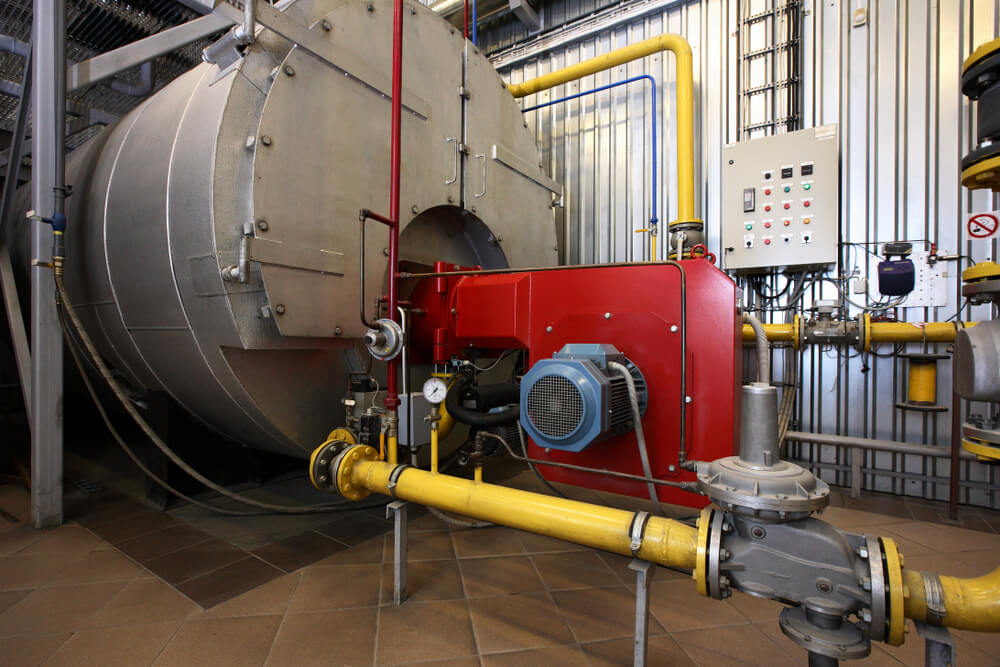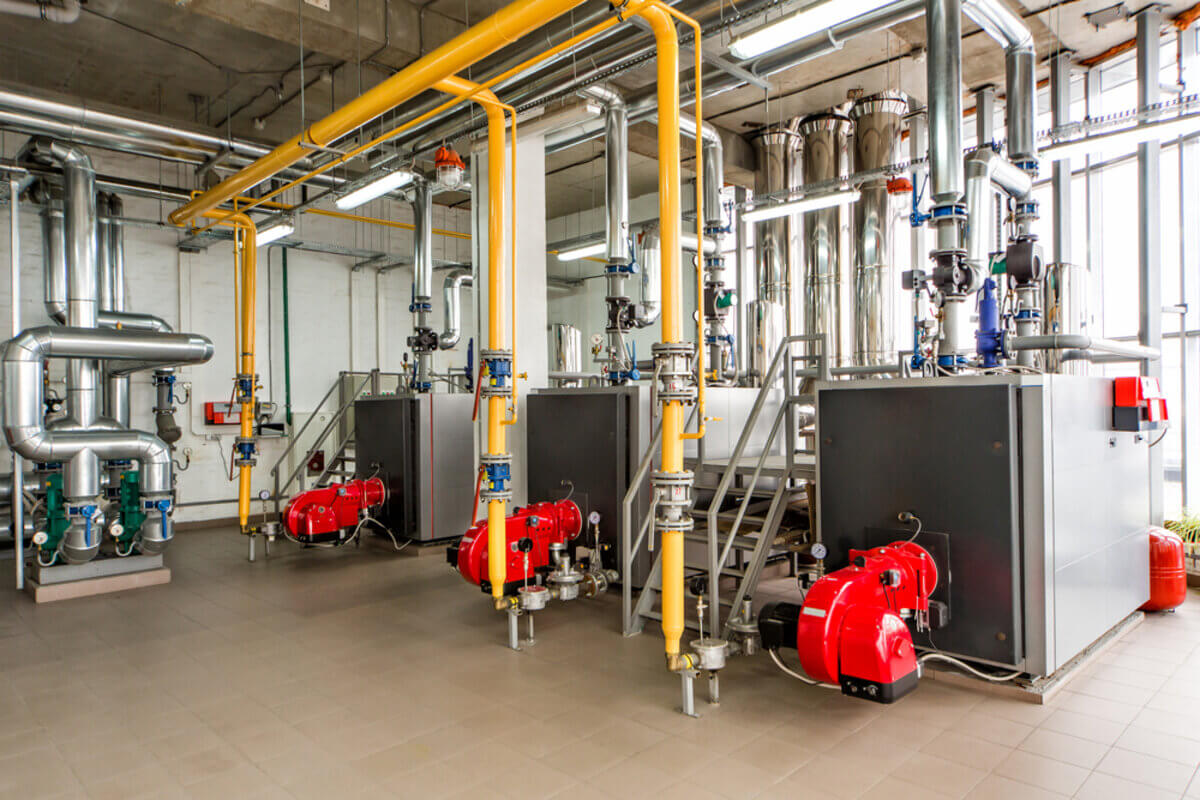Industrial boilers hold a high position in the process industries, including plants, refineries, and manufacturing facilities. All these boilers are quite expensive for the companies to purchase. So, it is essential to maintain them well to run them effectively and keep them in good condition for a long period. In this article we will consider the best techniques of industrial boiler maintenance for their users. Through these actions, companies (could) achieve better boiler performance, save expenses, and create safer conditions.
Daily Industrial Boiler Maintenance Practices
To ensure smooth operation of industrial boilers, certain tasks should be performed on a daily basis:
Inspect Equipment and Piping
Regularly check the boiler equipment, components, and piping for water leaks, obstructions, vibrations, or unusual noises. Additionally, inspect the venting system to ensure it is free from debris, ice, or snow.
Monitor Flame and Readings
Scan the boiler sight port for any signs of damaged flames or soot. Check the flue temperature, boiler temperature, and pressure readings to ensure that they fall within the desired range.
Maintain Water Quality
Check the water softener, dealkalizer, and chemical feed system to ensure they meet the required levels of salts and chemicals. It is essential to maintain proper water quality to prevent scaling and corrosion.
Perform Blowdown
Regularly conduct a blowdown of the boiler and water column to intentionally remove water from the system. This helps maintain water quality and prevent sediment buildup.
Monthly Industrial Boiler Maintenance Practices
Certain tasks should be performed on a monthly basis to keep the boiler in optimal condition:
Inspect Combustion Air and Flue Gas Piping
Check the combustion air piping and flue gas vent piping for leaks, deterioration, or blockages. Address any issues promptly to ensure proper airflow and venting.
Inspect Relief Valve and Burner Components
Examine the relief valve discharge pipe and boiler relief valve for any signs of leaking or weeping. Inspect the burner’s diffuser, pilot tube, and valves for burning, cracking, wear, or improper action.
Check Controls and Alarms
Ensure that operating and modulating controls are functioning correctly. Test lights and alarms to ensure they are working properly.
Clean Fireside Surfaces
Clean the boiler’s fireside surfaces as required to remove any soot or scale buildup. This helps maintain optimal heat transfer efficiency.
Periodic Industrial Boiler Maintenance Practices
Periodic maintenance tasks should be performed quarterly or seasonally:
Inspect Boiler Hydronic Piping
Check the boiler hydronic piping for any signs of leaking. Address any issues promptly to prevent water loss and potential damage.
Monitor Burner Flames
Regularly observe the appearance of the burner flames. If the flame looks different from normal, report it for further investigation.
Check Wiring and Switches
Inspect the condition of wiring and switches to ensure they are intact and functioning correctly.
Inspect Gaskets
Check the gaskets on the front and rear doors of the boiler and replace them as necessary.
Monitor Water Levels
Use low water cutoff devices to check the water levels and ensure they are within the manufacturer’s recommended range.
Annual Industrial Boiler Maintenance Practices
 It is essential to schedule an annual inspection and cleaning of the boiler system. Some key tasks to perform during this annual maintenance include:
It is essential to schedule an annual inspection and cleaning of the boiler system. Some key tasks to perform during this annual maintenance include:
Inspect Heating System and Venting
Check the heating system for any issues and resolve them promptly. Inspect the venting system for deterioration, corrosion, or blockages and ensure that all pipe and joint connections are secure.
Monitor Auxiliary Systems
Inspect and maintain auxiliary systems that provide fuel, air, water, or chemicals to the boiler.
Inspect Metal and Refractory
Check the metal components of the boiler for oxygen corrosion and inspect the waterside for heavy scaling on tubes, tubesheets, and shells. Inspect the refractory for cracks and patch or wash it as required.
Test Safety Valves and Gas Valves
Conduct safety tests on gas valves as recommended by the manufacturer. Check safety valves for any signs of leakage.
Inspect Control Settings and Electrical Connections
Check that the control settings are in accordance with the guidelines and test the safety and performance controls. Do an inspection of electrical cable connections and wiring to confirm whether they are not damaged.
Besides the once-a-year maintenance, it is suggested that burner assembly, including flame sensors and igniters, be cleaned. The boiler furnace, tubes, and tube sheets must be properly cleaned as well. Furthermore, the handhole and manhole plates could be cleaned by removing them and flushing them with water so that the loose scale and sediment may be displaced.
Routine Industrial Boiler Inspection
Besides regularly scheduled maintenance, it is vital to perform annual inspections by an independent and certified inspector from the NBBI (National Board of Boiler and Pressure Vessel Inspectors), too. This is entailed by the shutting down, draining, and disassembling of the boiler to make sure it conforms to the NBIC (National Board Inspection Code) standards.
In order to pass this examination, one needs to do rigorous boiler maintenance work using checklists. A company can use these regular inspections which will be done by the technicians who are experienced to ensure that all the safety standards are being followed.
Importance of Routine Industrial Boiler Maintenance
Enforcing the most optimal maintenance techniques for industrial boilers is so important for boiler safety and efficiency. These maintenance tasks, daily, monthly, periodic, and annual, help promptly detect trouble and prevent subsequent severe disruptions. Through boiler maintenance upkeep, enterprises can extend the life of their appliances, reduce operation costs, and make their workplaces safe. Always read the manufacturer’s guide before starting the work and get professional assistance when required. For more information on industrial boilers, contact Lindberg Process Equipment today.





